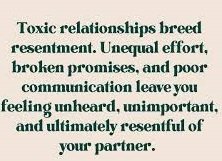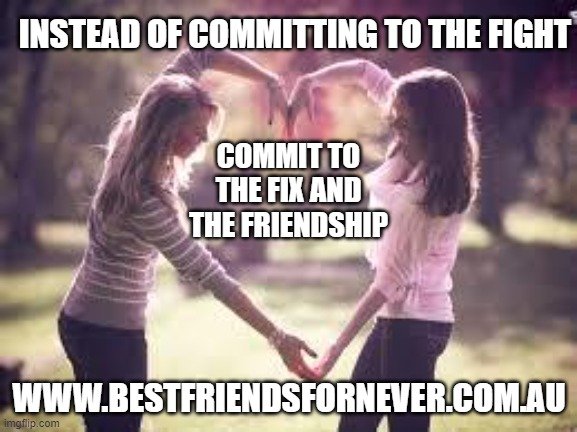Last week we talked about friendship counselling and if it is or should be something friends engage in. Ultimately it comes down to the 2 people involved and their values, feelings, wants and needs, so there is no one size fits all answer or approach. While I might go with one friend only if they suggested it, I might be more willing to suggest it for a different friendship. And for another I might refuse to go at all. Because each friendship is as unique as the people within it.
That post also touched on the commitment factor. If someone is committed enough to your friendship to suggest counselling in the first place, is this a good thing? Again it depends on the person. I see friendships as valuable platonic relationships, and with that I do believe I give, and expect in return, a certain level of commitment. However, I can name at least one friend who feels extremely claustrophobic by the word, and by the sentiment…. Not to mention my full adherence to the concept. In her mind, this makes me needy, makes her feel trapped and as a result when I make bids for closeness, it is often rebuffed with humour. Ironically, humour has become our own brand of closeness, as there can be intimacy in sarcasm too, believe it or not.
That’s not to say this friend is not committed to me. She clearly is, to some degree, being that we have had our fair share of ups and downs. But acknowledging it in this way, makes her want to run away immediately. I can kind of understand because I have another friend who I would say is probably more committed to us than I am. Similarly, her commitment can at times feel suffocating, and this can make it difficult to cancel plans for example. It’s only because she cares, and values our time together, and you can hardly hold that against someone. She is a good friend, and it is nice to be valued!
It probably is good for me to be able to experience this imbalance from both sides of the coin. It makes me more grateful for one friend’s investment and makes me understanding of why and how my own investment might scare someone at the same time. Ideally the commitment levels should be the same… be that zero commitment or 100%!
This is tricky though, because commitment is really a set of actions fueled by a strong connection, and the ways people express it might range from inviting someone to couples counselling, to asking a friend to have a hard conversation about your relationship, to making a weekly schedule and sticking to it, no matter what. It isn’t something we can see and easily measure. And it isn’t always immediately obvious if your levels of commitment differ either.
You may both agree to a daily gym session and coffee before work, but come to find one of you is always trying to cancel while the other is always reluctant to accept this and pushing for continued attendance like you both agreed. While you did both agree, you didn’t actually realise that this was a proper commitment and you had essentially promised to be there. Nothing makes you want to do something less than feeling like you HAVE to do it regardless of if you want to or not.
In that sense it could be argued that commitment removes authenticity and sponetnaetity to a friendship, holding someone to something against their free will and removing their autonomy. And nobody in this world enjoys that feeling. It is then, that commitment starts feeling quite a lot like control. It’s not even always as full on as a daily thing. Sometimes it might be a fortnightly dinner and when one person says they can’t make it, their friend pushes for another night. Yet when that friend has to cancel another time, the first person might just allow it to slide until next fortnight.
And that can feel pretty lousy too. If it means enough to you that you would try to rearrange your schedule to fit your friend in, yet they don’t seem interested in making the same efforts in return, again that imbalance can feel pretty heavy. And it’s not exactly something you really sit down and discuss when you become friends with someone is it? This is more of a subtle thing that grows and develops over time and something we learn about each other slowly.
Does this mean that it is better not to involve commitment in friendships at all? Is that the factor that determines the difference between a friendship and a relationship? Society might prefer to believe this, and stick to the loose idea that friendships are more transient and fleeting. Because we can have many, they are watered down in intensity and if you no longer find yourself on the same page as a friend, the obvious conclusion is to go start a new story with someone else. The effort to save the friendship is where the commitment is really tested.
I really feel that this is ultimately what commitment is all about. That at the end of the day, if you disagree, a committed friend will not just cut and run. A committed friend will stay and try to work together to solve a problem.
I had issues with a very close friend of mine where it had started to feel like I was more invested and committed to our time together than she was. This started to cause us both some building resentment. She would cancel plans and I would say it was fine, while feeling hurt. Then eventually I had to tell her that her consistent cancelling felt horrible and like it was more important to me than it was to her. She then felt resentful that I didn’t understand all the other things on her plate and offended that I was making something that wasn’t personal all about me. (Yes, after 8 years of this blog, the whole point of which is “remember it’s not about you” I still struggle and sometimes take things way too personally. It’s a journey. I don’t think I will ever recover completely but I am able to pull myself out of this mindset more quickly these days. Which is progress, however slow!)
Anyway, eventually, as distance grew, I had to pull out the commitment card, and say “you are too important to me for us to end it here. I want to resolve this tension, blame is unhelpful, let’s work together and remember we are a team.” And it wasn’t hard after that. A while back we had committed to a schedule of meeting up, that worked at the time, and no longer worked now. So all we had to do, was change the commitment to something that did work for her. This way instead of cancelling, she was able to show up, and instead of expecting more than she could give and being disappointed, I readjusted what I could expect and am able to still find meaning in the time we do get together.
The commitment to fix us was way more important than our mismatched levels of commitment about our social schedule. And ultimately our commitment to stay connected was equal. I suppose commitment can be both a blessing and a curse. Some friendships don’t really require much at all, the only commitment being that you maintain positive regard for one another despite any distance. But if all our friendships were this casual I think we would be lonely and we do need another layer of friends who provide more closeness and consistency. With that comes commitment no matter what side of the coin you fall on in any given friendship.
❤ Love,
Your Best Friend ForNever
xx





